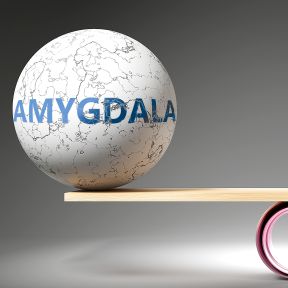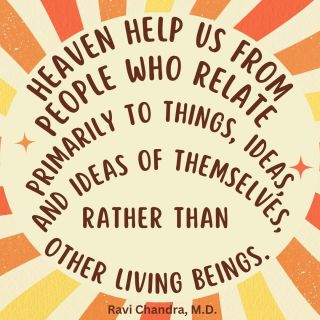TRAUMA- Can We Downregulate the "United States of Amygdalae?" Antagonism stateside borne of atrocities abroad.

USA—A for Amygdalae? Or USB—B for Belonging? Which one will we plug into?
The violent attacks in Israel, and the horrifying response against Gaza has been salt on the wounds of multiple traumas – transhistorical, racial, cultural, and intergenerational – and created new traumas which we will all be dealing with for generations. The traumas of the current episode of cyclical violence may indeed be irreparable, even with the utmost humanitarian and mental health care. This reality of this trauma has created overwhelm, individually, communally, and collectively. Where might we begin to heal and transform?

Dr. Patricia Gerbarg, assistant professor of psychiatry at New York Medical College, is co-founder with Dr. Richard Brown of Breath-Body-Mind which innovates globally in providing disaster relief. They are ramping up trauma relief and healing programs for both Israelis and Palestinians through their organization. (See references.) Dr. Gerbarg had this to say:
[F]eeling threatened puts us in a defensive state wherein we are at risk for negatively distorting our perceptions of others. Our fight-flight[-freeze] systems are activated and our social engagement systems are down-regulated. Feeling like we want to run away (leave) rather than engage with people is an expression of this shift in our psychophysiological state. When we are in a state of greater parasympathetic dominance (myelinated vagal system) we are best able to engage with others and be flexible, adaptive, empathic, loving, connected, communicative, and cooperative with others. But, when severe, prolonged, or repeated traumatic stressors are affecting us, we can get stuck in a sympathetically driven state wherein we are over reactive, emotionally dysregulated, angry or fearful, disengaged, and unable to be close or open with others.
When we are in overwhelm, we can move into avoidance or antagonism, striving to protect something very close to our hearts. That could be the survival of our moral conscience, or survival of our self- or group-concept, it could be our actual physical survival or the survival of those we care for and about.
On top of that, many Americans may have insufficient social skills and empathy to navigate the complexity of real world and social media relationships, causing a worrisome back and forth between our various domains, and palpable difficulties in integrating them, much less creating a coherent real world scenario that matches the boundless hopes of our precious inner worlds. The real world seems impassable to the point of cruelty; our hopes, demands, and needs reach for voice and influence, and the resulting impasse results in tremendous intrapsychic and interpersonal pressure and cycles of antagonism and attempted containment, which can come down as hostility and contempt. My personal hope is that these pressures can somehow evolve to transcendent belonging. But to get to that, we have to move away from cycles of contempt and idealization (see table linked in references, and other references).
Contempt, rage, interpersonal antagonism, and self-idealization are connected with narcissism and megalomania, which our American culture, unfortunately, has produced in abundance, and which can be flights from human vulnerability. Narcissism and megalomania create unconscious and conscious pressures on us all, as anyone who’s had to deal with a self-centered person knows. But we all have to deal with our self-centeredness. Our self-centeredness calls into question whether individually and culturally we are on a precipitous, reckless flight from vulnerability that could destroy us all if we do not evolve to greater degrees of belonging, compassion, and connection across our diversity.
A 2015 study found that "participants from around the world (N = 377) rated Americans as more narcissistic, extraverted, and antagonistic than members of their own countries." Also, "American adults (N = 100) rated Americans as significantly more narcissistic than they perceived themselves and acquaintances." American college students also perceived their fellow Americans "as disagreeable and antisocial as well."
It's not a good setup for having difficult conversations. In a pinch, folks like these (uh, folks like us) might be more likely to become selfish, self-righteous, short-sighted, abusive, and domineering, as opposed to compassionate, forgiving, visionary, selfless, kind, and egalitarian.
The current conflict between Israel and Gaza has landed on what we used to call in medical school "piss poor protoplasm," or a body that's not so good at handling challenges.
The New York Times article and video Pick a Side. Pick a Side. Pick a Side. Now. (see references) illustrates the problem. On social media, at least, some of the initial response has been self-righteous to the point of cruelty.
And in real life, the "debate" has spun out into hate incidents against Jews, Arab-Americans, Palestinian-Americans, Muslims, and Brown-skinned people in general. We saw this happen in full force after 9/11 as well.
I remain very worried about vulnerable people. And on a psychoanalytic level, this event calls into question the concept of "boundaries"—there are no boundaries on trauma. Trauma shatters the self, and emotions travel virally and globally.
We've all had big emotions. Welcome to "Big Global Emotions."
These incidents threaten to spiral out of control and rip the tenuous fabric of any belonging we might have. So far, there has been little room for "the middle" of a peaceful resolution acceptable to all sides. This would have to be possible in allies/backers like the U.S. and within the parties currently at war.
How do we get to "Big Global Thoughtfulness?" How might we use this collective and ongoing trauma to get to "Big Mindedness," or the "Geocortex," I wrote in my recent post, Cultivating a Sense of Self to Cope with Trauma and Life?

I think it's possible that enhancing the components of Daniel Goleman's conceptualization of emotional intelligence (self-awareness, self-regulation, motivation, empathy, and social skills (or boarding the SS MESS, as I call it) might get us to higher ground. We might be able to use this trauma or move through it to cultivate a higher state of belonging.
We might be able to know ourselves and each other better. We might—heaven help us—be able to listen to the wise, quiet voices that get drowned out in the din.
I think we have to remember:
- Everyone is human. Distressingly and painfully, even what some consider "inhumanity" is very human. We don't need to create a split between human and inhuman. Our humanity is quite malleable depending on circumstances, ideologies, groupthink, trauma, and experiences of being loved and cared about. We all have Jekyll and Hyde. Perhaps the best cultivators of grounded self I've heard about are (1) those Jews in Nazi death camps who prayed, thanking God they weren't made like their tormentors; and (2) Tibetan monks who, when asked what they feared most while being tortured by Chinese in prison replied that they feared losing compassion for their torturers. These people cultivated a sense of self, while others lost their senses of self/soul to antagonism and hatred.
- Our collective sense of self is in crisis. This is apparent in our political divisions, which have been sharply polarized and practically engineered to give extremist views the most attention.
- Because we are social beings with open limbic loops, we affect each other in relationship, from blood pressures to hormones to moods to chromosomes. Our fight/flight/freeze/fawn survival responses can travel globally as emotional contagion. And what goes around comes around, emotionally speaking. We all have a responsibility to become more self-aware and able to self-regulate. But we all have responsibility to compassionately work with each others' distresses. Maybe we can downregulate our "United States of Amygdalae" by naming and understanding our emotions and naming what's happening as a collective trauma. (See my previous article What Do We Feel When We Feel Close? The Dim Sum Dialogues.)
- The dominant or dominating culture has a comfort zone, which could be seen as silence and avoidance at best or cruelty and retaliation at worst. Wake me when the dominant culture's comfort zone is reason and compassion. This comfort zone is part and parcel of what Noam Chomsky identified as the "manufacture of consent." The lowest common denominator of our "United States of Amygdalae" comfort zone becomes antagonism and war.
- All societies can bind their anxieties by creating scapegoats and enemies, which gives a false, temporary feeling of power over uncertainty and the actual human condition of powerlessness against forces much greater than the individual self.
- Marry war in haste, repent war at leisure. We have dueling narratives of what is happening, forged by trauma but fueled by power, powerlessness, and cataclysmic fears of annihilation.
- Survival comes from flocking, not the short-term fight/flight/freeze mechanisms. This requires downregulating our amygdala and enhancing the whole brain, full-bodied love, and compassion. Judith Herman noted in Trauma and Recovery:
The capacity to form strong attachments is not destroyed even under the most diabolical conditions: prisoner friendships flourished even in the Nazi death camps. A study of prisoner relationships in these camps found that the overwhelming majority of survivors became part of a 'stable pair,' a loyal buddy relationship of mutual sharing and protection, leading to the conclusion that the pair, rather than the individual, was the 'basic unit of survival.'
I hope we can forge deeper belonging through this collective trauma. Belonging is survival. "Fitting in" with a faction is not the same as belonging. Factionalism is a clear threat to belonging and survival.
Necessity is not only the mother of invention. Necessity is the mother of meaning—the deepest meaning of our human existence.
We are in the fight of our lives.
All in favor of flocking, say aye.
- Questions and Answers
- Opinion
- Story/Motivational/Inspiring
- Technology
- Art
- Causes
- Crafts
- Dance
- Drinks
- Film/Movie
- Fitness
- Food
- Games
- Gardening
- Health
- Home
- Literature
- Music
- Networking
- Other
- Party
- Religion
- Shopping
- Sports
- Theater
- Wellness
- News
- Culture
- War machines and policy

